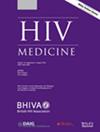Long COVID among people with HIV: A systematic review and meta-analysis
Abstract
Background
People with HIV might be at an increased risk of long COVID (LC) because of their immune dysfunction and chronic inflammation and alterations in immunological responses against severe acute respiratory syndrome coronavirus-2 (SARS-CoV-2; coronavirus disease 2019 [COVID-19]). This systematic review aimed to evaluate the association between HIV infection and LC and the prevalence and characteristics of and risk factors for LC among people with HIV.
Methods
Multiple databases, including Embase, PubMed, PsycINFO, Web of Science, and Sociological Abstracts, were searched to identify articles published before June 2023. Published articles were included if they presented at least one LC outcome measure among people with HIV and used quantitative or mixed-methods study designs. For effects reported in three or more studies, meta-analyses using random-effects models were performed using R software.
Results
We pooled 39 405 people with HIV and COVID-19 in 17 eligible studies out of 6158 publications in all the databases. It was estimated that 52% of people with HIV with SARS-CoV-2 infection developed at least one LC symptom. Results from the random-effects model showed that HIV infection was associated with an increased risk of LC (odds ratio 2.20; 95% confidence interval 1.25–3.86). The most common LC symptoms among people with HIV were cough, fatigue, and asthenia. Risk factors associated with LC among people with HIV included a history of moderate–severe COVID-19 illness, increased interferon-gamma-induced protein 10 or tumour necrosis factor-α, and decreased interferon-β, among others.
Conclusions
The COVID-19 pandemic continues to exacerbate health inequities among people with HIV because of their higher risk of developing LC. Our review is informative for public health and clinical communities to develop tailored strategies to prevent aggravated LC among people with HIV.


 求助内容:
求助内容: 应助结果提醒方式:
应助结果提醒方式:


